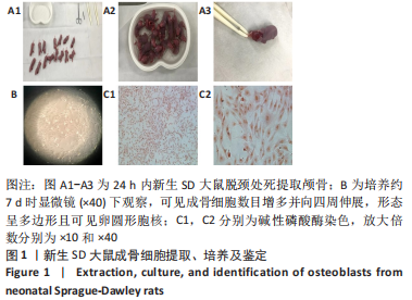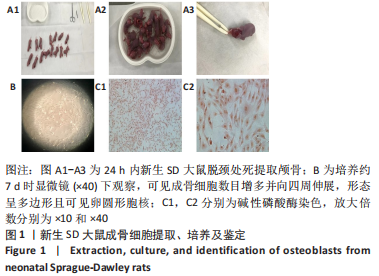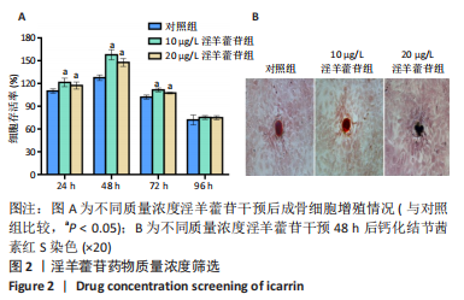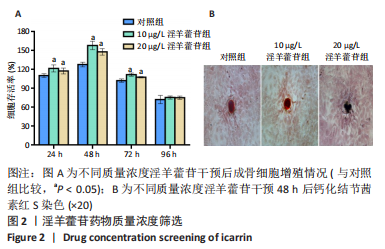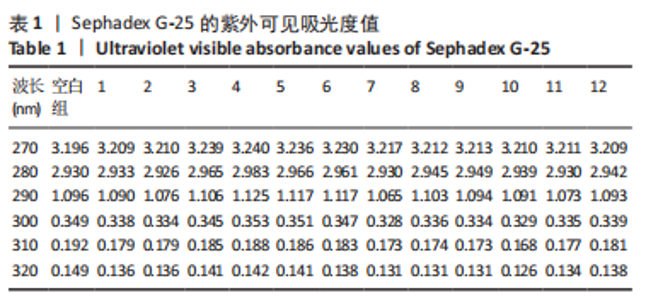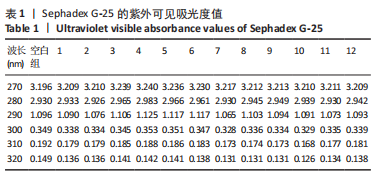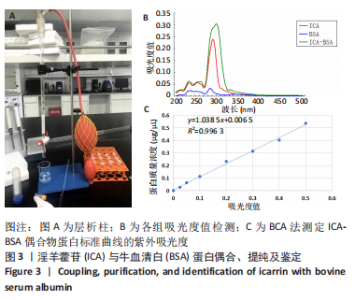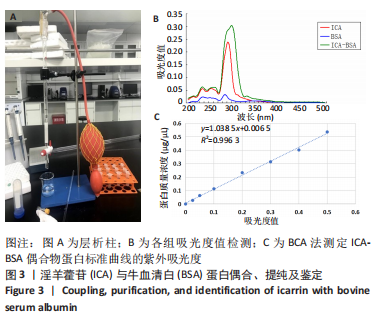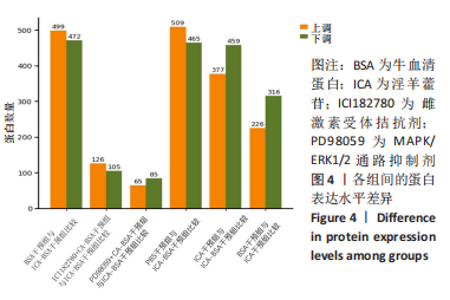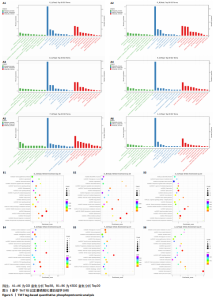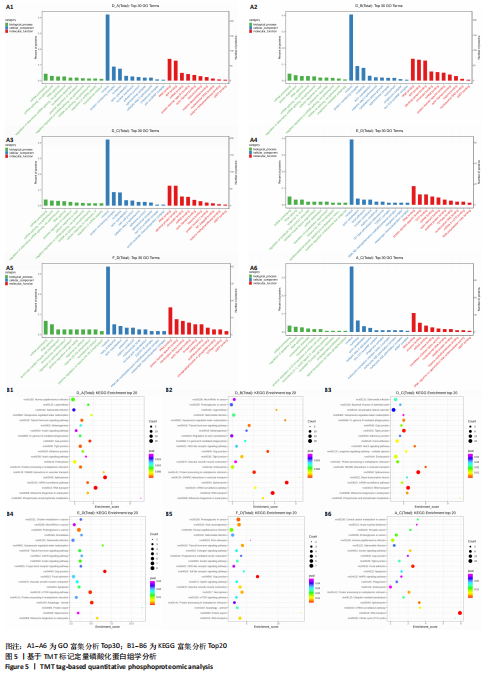[1] 王昌军,尹宏.肌肉组织和脂肪组织对绝经后女性骨密度及骨强度的影响及作用机制[J].中国骨质疏松杂志,2019,25(10):1502-1508.
[2] REID IR, BILLINGTON EO. Drug therapy for osteoporosis in older adults. Lancet. 2022;399(10329):1080-1092.
[3] 刘畅畅,尹宏,段光宇,等.老年女性髋部骨折与DXA骨强度参数的相关性研究[J].中国骨质疏松杂志,2018,24(1):83-86,90.
[4] 杨柳,尹宏.连接蛋白43介导机械应力刺激下骨重建的研究进展[J].广东医学,2015,36(19):3075-3077.
[5] FISCHER V, HAFFNER-LUNTZER M. Interaction between bone and immune cells: Implications for postmenopausal osteoporosis. Semin Cell Dev Biol. 2022;123:14-21.
[6] 杨柳,尹宏.淫羊藿对破骨细胞骨吸收功能及机制研究进展[J].辽宁中医药大学学报,2015,17(7):117-120.
[7] LIU LL, LIU GW, LIU H, et al. Iron accumulation deteriorated bone loss in estrogen-deficient rats. J Orthop Surg Res. 2021;16(1):525.
[8] KIM HJ, LEE J, LEE GR, et al. Flunarizine inhibits osteoclastogenesis by regulating calcium signaling and promotes osteogenesis. J Cell Physiol. 2021;236(12):8239-8252.
[9] 熊梦欣,向楠,薛瑶珺,等.基于“肾痰”认识骨-脂代谢异常失衡在绝经后骨质疏松症发病中的作用[J].中国骨质疏松杂志,2022, 28(3):455-459.
[10] 谢兴文,钟建春,李鼎鹏,等.薯蓣皂苷防治原发性骨质疏松的研究进展[J].基础医学与临床,2022,42(6):960-963.
[11] 王勇,黄永松,李冬春,等.补肾健骨汤对去卵巢大鼠股骨颈骨小梁微血管和骨密度的影响[J].湖南中医药大学学报,2016,36(5):14-17.
[12] 孙海涛,丁仁,尹宏,等.淫羊藿对体外培养成骨细胞影响的研究进展[J].医学综述,2010,16(24):3696-3699.
[13] 钱卫庆,尹宏,孙海涛.不同浓度淫羊藿苷对大鼠成骨细胞增殖、分化的影响[J].中国医药导报,2011,8(36):23-25.
[14] 姚年伟,何强,刘易昕,等.不同浓度淫羊藿苷对胎鼠成骨细胞炎性反应的保护作用研究[J].海南医学院学报,2020,26(23):1775-1779.
[15] 钱卫庆.淫羊藿苷促成骨细胞增殖中非核效应及机制研究[D].苏州:苏州大学,2016.
[16] 何强,钱卫庆,姚年伟,等.地黄梓醇对新生大鼠炎性成骨细胞的保护作用[J].中国组织工程研究,2020,24(29):4626-4631.
[17] BOUTET E, LIEBERHERR D, TOGNOLLI M, et al. UniProtKB/Swiss-Prot, the Manually Annotated Section of the UniProt KnowledgeBase: How to Use the Entry View. Methods Mol Biol. 2016;1374:23-54.
[18] 邹世恩,张绍芬.雌激素对成骨细胞和破骨细胞凋亡的调节机制[J].现代妇产科进展,2006,15(7):547-548,551.
[19] JI L, LI X, HE S, et al. Regulation of osteoclast-mediated bone resorption by microRNA. Cell Mol Life Sci. 2022;79(6):287.
[20] 任明诗,丁羽,李子涵,等.成骨细胞与破骨细胞相互调节作用的研究进展[J].中国药理学通报,2022,38(6):822-827.
[21] ZHANG Y, YANG M, ZHANG S, et al. BHLHE40 promotes osteoclastogenesis and abnormal bone resorption via c-Fos/NFATc1. Cell Biosci. 2022;12(1):70.
[22] REN R, GUO J, CHEN Y, et al. The role of Ca2+ /Calcineurin/NFAT signalling pathway in osteoblastogenesis. Cell Prolif. 2021;54(11): e13122.
[23] 刘易昕,何强,张大鹏,等.大鼠骨质疏松模型的建立及其骨髓间充质干细胞内差异lncRNA初步分析[J].南京医科大学学报(自然科学版),2022,42(1):30-34,46.
[24] BATTAGLIONI S, BENJAMIN D, WÄLCHLI M, et al. mTOR substrate phosphorylation in growth control. Cell. 2022; 185(11):1814-1836.
[25] ZHANG B, SHAO L, WANG J, et al. Phosphorylation of ATG18a by BAK1 suppresses autophagy and attenuates plant resistance against necrotrophic pathogens. Autophagy. 2021;17(9):2093-2110.
[26] 唐星冉,周惠芳,冯华,等.基于MAPKs信号通路探讨补肾助孕方改善BN大鼠黄体功能的作用机制[J].中国实验方剂学杂志, 2022,28(12):78-85.
[27] 徐小梦,康迪,朱新宇,等.基于IRAK4/ERK/p38信号通路雷公藤红素对多发性骨髓瘤细胞增殖和凋亡的影响[J].中国实验血液学杂志,2022,30(1):175-182.
[28] Kumar R, Theiss AL, Venuprasad K. RORγt protein modifications and IL-17-mediated inflammation. Trends Immunol. 2021; 42(11): 1037-1050.
[29] WANG X, QIU T, WU Y, et al. Arginine methyltransferase PRMT5 methylates and stabilizes KLF5 via decreasing its phosphorylation and ubiquitination to promote basal-like breast cancer. Cell Death Differ. 2021;28(10):2931-2945.
[30] ZHU G, HERLYN M, YANG X. TRIM15 and CYLD regulate ERK activation via lysine-63-linked polyubiquitination. Nat Cell Biol. 2021;23(9):978-991.
[31] 王爱飞,吴加东,徐又佳.铁蓄积通过mTOR信号通路影响小鼠骨形成与血管生成偶联的实验研究[J].中华内分泌代谢杂志,2022, 38(1):68-79.
[32] 林乔,周钢,黎靖毅,等.低强度脉冲超声通过PIEZO1/PI3K/AKT/mTOR信号通路促进成骨细胞增殖的研究[J].中国骨质疏松杂志, 2021,27(12):1800-1803,1826.
[33] LI C, YANG P, LIU B, et al. Prednisolone induces osteocytes apoptosis by promoting Notum expression and inhibiting PI3K/AKT/GSK3β/β-catenin pathway. J Mol Histol. 2021;52(5):1081-1095.
[34] FISCHER S, NASYROV E, BROSIEN M, et al. Self-extracellular RNA promotes pro-inflammatory response of astrocytes to exogenous and endogenous danger signals. J Neuroinflammation. 2021;18(1):252.
[35] 姜涛,凌翠敏,陈庆真,等.淫羊藿苷通过提高自噬促进成骨细胞分化防治骨质疏松[J].中国组织工程研究,2021,25(17):2643-2649.
[36] 明磊国,陈克明,葛宝丰,等.淫羊藿苷与染料木黄酮对体外培养成骨细胞增殖及矿化成熟影响的对比研究[J].中国中药杂志,2011,36(16):2240-2245. |
